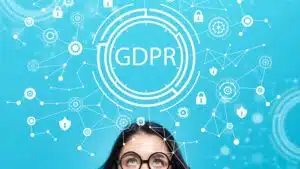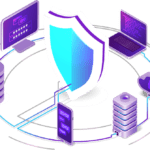In today’s digital age, businesses constantly face threats to their security and data integrity. To combat these risks, many organizations are turning to Service Organization Control (SOC) reports as a way to assess and demonstrate their security controls and processes. But what exactly is a SOC report, and how can it benefit your business?
This comprehensive guide will break down the fundamentals of SOC reports, including their purpose, types, and how they can help you build trust with your clients and stakeholders. So, if you’re ready to bolster your business’s security posture, keep reading to learn everything you need about SOC reports.

In this Guide
What is a SOC Report?
A System and Organization Controls (SOC) report is a comprehensive and standardized report that provides detailed information about an organization’s internal controls, policies, and procedures. SOC reports are typically prepared by a certified public accountant (CPA) and are designed to assure stakeholders, such as customers, business partners, and regulators, about the effectiveness of an organization’s internal controls.
There are three types of SOC reports: SOC 1, SOC 2, and SOC 3.
A SOC 1 report specifically focuses on the controls relevant to financial reporting. It provides detailed information about the design and operating effectiveness of an organization’s internal controls over financial reporting. SOC 1 reports are typically used by organizations that provide services that could impact their customers’ financial statements, such as payroll processing or data center hosting.
A SOC 2 report, on the other hand, is more comprehensive and covers a broader range of criteria. It evaluates an organization’s controls related to security, availability, processing integrity, confidentiality, and privacy. SOC 2 reports are often used by organizations that provide technology services, such as software-as-a-service (SaaS) providers, to demonstrate their commitment to protecting customer data and ensuring the availability and integrity of their systems.
Finally, a SOC 3 report is a summarized version of a SOC 2 report that is available for public consumption. It provides a high-level overview of an organization’s controls and does not include detailed information about the design and operating effectiveness of those controls. SOC 3 reports are often used by organizations that want to publicly demonstrate their commitment to security and privacy without sharing sensitive details.
Obtaining a SOC report can provide many benefits to an organization. It demonstrates a commitment to strong internal controls, which can help to build trust with customers, business partners, and regulators. It can also help identify areas for improvement and provide guidance on strengthening an organization’s systems and processes.
In conclusion, a SOC report is a valuable tool that assures an organization’s internal controls. Whether it is a SOC 1, SOC 2, or SOC 3 report, obtaining and maintaining a SOC report can help organizations to demonstrate their commitment to security, privacy, and an overall control environment.
Types of SOC Reporting
SOC 1 Reports
A SOC1 report, also known as a Service Organization Control 1 report, independently evaluates a service organization’s internal controls. It is conducted by external auditors and is used to assure the service users that the organization has effective internal controls in place. The SOC1 report is specifically focused on controls related to financial reporting. It is often used by service organizations that have an impact on their clients’ financial statements, such as companies that provide accounting, payroll, or investment management services. The report evaluates the design and operating effectiveness of the controls in place to ensure the accuracy and reliability of financial information. There are two types of SOC1 reports: Type 1 and Type 2. A Type 1 report provides an evaluation of the design of the controls as of a specific date, while a Type 2 report provides an evaluation of the design and operating effectiveness of the controls over some time, typically six to twelve months.SOC 2 Reports
A SOC2 report evaluates an organization’s internal controls related to security, availability, processing integrity, confidentiality, and privacy. It provides an independent assessment of how well an organization safeguards its customer’s data and assesses the risks associated with its systems. An independent auditor typically conducts the report and includes a detailed description of the service organization’s controls, the tests performed on those controls, and the results of those tests. It also provides an opinion on whether the controls are suitably designed and operating effectively. The SOC2 report is important for several reasons. Firstly, it helps service organizations establish trust and credibility with their customers by assuring them that their data is safe. It provides evidence that the organization has implemented adequate measures to protect customer information and ensure its privacy. Secondly, many organizations require their service providers to have a SOC2 report as part of their compliance requirements. This includes industries such as healthcare, finance, and technology, where protecting sensitive data is paramount. A SOC2 report can give organizations a competitive advantage over their competitors regarding winning contracts or partnerships. Lastly, a SOC2 report can assist service organizations in identifying any weaknesses or gaps in their controls. The audit process may uncover areas for improvement or potential risks that were previously unknown. This allows organizations to take corrective measures and enhance their security posture.SOC 3 Reports
The SOC3 report differs from the SOC2 report in that it is a general-use report that can be freely distributed and made available to the public. It is intended for organizations that want to assure their customers and stakeholders about the effectiveness of their controls and processes without disclosing the specific details of the controls. The SOC3 report focuses on the organization’s controls and processes related to security, availability, processing integrity, confidentiality, or privacy. It provides an overview of the organization’s control environment, identifies any relevant risks, and assesses the effectiveness of the organization’s controls in mitigating those risks. The report is typically prepared by an independent auditor who evaluates the organization’s controls against the criteria outlined in the SOC 2 standards. The auditor examines the organization’s documentation, conducts interviews with key personnel, and performs testing to validate the effectiveness of the controls. Organizations that obtain a SOC3 report can publicly share it with their customers, business partners, and other stakeholders to demonstrate their commitment to security, privacy, and operational excellence. It can be a valuable tool in building trust and confidence in the organization’s ability to protect sensitive information and meet regulatory requirements.The Need for SOC Reports in Various Industries
Financial services
In the financial services industry, ensuring the security and protection of sensitive data is of utmost importance. With the increasing number of cyber threats and data breaches, companies in this sector must take proactive measures to safeguard their information systems and assets. One effective way to demonstrate their commitment to security is through SOC (System and Organization Controls) reporting.
SOC reporting provides an independent assessment of the controls and processes implemented by a company to protect its clients’ data. It allows organizations to demonstrate the effectiveness of their internal controls and assure clients that their data is being handled securely. Clients often request SOC reports as part of the due diligence process, as they assure that appropriate controls are in place to mitigate risks.
The financial services industry is heavily regulated, and compliance with industry standards and regulations is crucial. SOC reporting, specifically SOC 1 and SOC 2 reports, aligns with important industry frameworks such as COSO and COBIT. These reports demonstrate compliance with relevant regulations, such as the Gramm-Leach-Bliley Act (GLBA) and the Sarbanes-Oxley Act (SOX), and provide assurance to regulators and stakeholders.
Healthcare
SOC reports are particularly relevant in healthcare due to the sensitive nature of patient data and the regulatory requirements in place to protect this information. With the increasing frequency and sophistication of cyberattacks targeting healthcare organizations, these entities must demonstrate that they have implemented robust security measures to safeguard patient data.
SOC reports can help healthcare organizations identify areas of vulnerability and strengthen their control environment. By undergoing a SOC examination, organizations can gain a greater understanding of their IT infrastructure, identify potential weaknesses in their systems, and take proactive steps to address these issues.
Furthermore, SOC reports can also enhance the reputation and credibility of healthcare organizations. By obtaining a SOC report, organizations can demonstrate to their stakeholders and customers that they have implemented best practices for data security and privacy. This can instill confidence in patients, partners, and regulators and differentiate the organization from its competitors.
In the healthcare industry, SOC 2 reports are particularly valuable, as they provide assurance that organizations have implemented effective controls to protect patient data and comply with industry regulations such as HIPAA.
The Process of Obtaining a SOC Report
Obtaining a SOC (System and Organization Controls) report can be complex and requires careful planning and execution. SOC reports provide valuable information about the effectiveness of a company’s internal controls and procedures, making them critical for organizations that handle sensitive data or provide outsourced services.
To start the process, it is crucial to determine which type of SOC report is required. There are three main types: SOC 1, SOC 2, and SOC 3. SOC 1 reports focus on the controls related to financial reporting, while SOC 2 reports evaluate a company’s security, availability, processing integrity, confidentiality, and privacy. SOC 3 reports provide a high-level overview of a company’s controls and may be used for general marketing purposes.
Once the appropriate report type has been determined, the next step is to engage a qualified CPA firm that specializes in conducting SOC audits. It is important to select a firm with expertise in the specific type of SOC report needed, as different auditors may have varying levels of experience and knowledge in different areas.
The auditor will work closely with the company’s internal teams to assess the effectiveness of the controls in place. This process typically involves reviewing documentation, interviewing key individuals, and testing the controls to ensure they are functioning as intended.
After the fieldwork is completed, the auditor will compile their findings into a report. SOC reports typically consist of an opinion letter, a description of the system and controls, an assessment of the controls’ effectiveness, and any identified control deficiencies or recommendations for improvement. The report should also include a summary of the auditor’s procedures and evidence gathered during the audit.
Finally, the report is distributed to stakeholders, such as management, customers, and regulatory bodies. It is crucial to ensure that the report is shared with the appropriate parties in a timely manner, as it can serve as a valuable tool to demonstrate an organization’s commitment to strong internal controls and data protection.
Obtaining a SOC report can be a rigorous process, but it is an essential step for organizations looking to instill trust and confidence in their operations. Working with an experienced CPA firm and following a structured approach will help ensure a smooth and successful SOC reporting process.
Benefits of SOC Compliance
So why should your company consider achieving SOC Compliance?
First and foremost, SOC Compliance provides a high level of assurance to your customers and stakeholders that you take data security seriously. It demonstrates that you have implemented robust controls and procedures to protect their sensitive information. This can lead to increased trust and confidence in your organization and may even give you a competitive advantage in the marketplace.
Secondly, achieving SOC Compliance helps you avoid costly data breaches and security incidents. By adhering to the rigorous controls and frameworks set forth in SOC standards, you are less likely to experience a breach or a loss of customer data. This not only protects your customers, but it also protects your company from potential legal and financial repercussions.
Additionally, SOC Compliance can improve your operational efficiency. The processes and controls required for SOC Compliance often lead to better internal organization and streamlined workflows. By implementing these best practices, you can identify and mitigate risks more effectively, improve your data handling procedures, and enhance your overall business operations.
Another benefit of SOC Compliance is that it opens up new business opportunities. Many organizations, especially larger enterprises, require their vendors and service providers to be SOC-compliant. By achieving SOC Compliance, you can attract new clients and partners who value data security and privacy. This can expand your customer base and potentially lead to increased revenue and growth for your company.
Lastly, SOC Compliance can help you stay ahead of regulatory requirements. With the increasing focus on data protection and privacy, many industries are subject to strict regulations and compliance frameworks. By achieving SOC Compliance, you are demonstrating your commitment to meeting these regulatory requirements, which can help you avoid penalties and legal issues.
In summary, achieving SOC Compliance offers a range of benefits for your company. It establishes trust with your customers, reduces the risk of data breaches, improves operational efficiency, opens up new business opportunities, and helps you stay compliant with regulatory requirements. If data security and privacy are important to your business, SOC Compliance is certainly worth considering.
Conclusion
In conclusion, understanding SOC reports is essential for businesses demonstrating their commitment to strong internal controls and compliance. SOC reports provide valuable insights into a service organization’s processes, controls, and security measures. This comprehensive guide has provided in-depth information on the different types of SOC reports, their purpose, and the benefits they offer to businesses and their clients.
To stay informed on the latest industry updates and receive more tips on improving your organization’s security and compliance, contact Oppos Cybersecurity Experts today. Additionally, contact us today for a free consultation to learn how our expertise can support your organization’s SOC reporting needs.
SOC FAQS
SOC1 focuses on financial reporting, SOC2 focuses on security controls & SOC3 provides a summary of SOC2 that is meant for public consumption.
SOC reports are valid for 1 year, so they should be renewed annually.
Yes, SOC reporting is a great way to improve customer & stakeholder confidence.
SOC reports demonstrate how you can protect customer data while providing transparency into your control environment.




